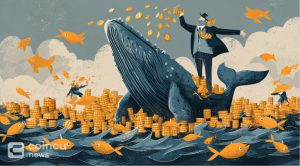- Ray Dalio asserts tariffs overshadow deeper global economic shifts.
- Focus is needed on structural forces impacting the global order.
- Historical parallels suggest possible severe economic consequences.

Ray Dalio, founder of Bridgewater Associates, cautioned stakeholders to consider deeper global economic shifts beyond tariffs on April 8th. His statements urge attention to broader economic forces affecting global stability.
Dalio’s analysis emphasizes that while tariffs appear significant, they merely reflect broader systemic issues threatening global stability. Policymakers should scrutinize historical parallels and learn from past disruptions.
Dalio Identifies Global Order’s ‘Classic Collapse’
Dalio identified the current climate as a “classic collapse” of global orders, including economic, political, and geopolitical aspects. He stated that tariffs are symptoms of deeper issues and underscored the need to understand five major forces shaping the world: economic, political, geopolitical, natural, and technological.
“What we are witnessing is part of a historic large cycle where tariffs are only manifestations of deeper systemic challenges.” – Ray Dalio, Founder, Bridgewater Associates
The focus shifts to longer-term implications, as Dalio warns that existing short-term policies on tariffs cannot mitigate underlying issues. The analysis suggests leaders pivot to address systemic structural challenges, hinting at possible severe disruptions.
Historical Cycles: Lessons and Strategies
Analyzing historical cycles, Dalio points to past events like the Great Depression and 2008 financial crisis as similar periods where the world experienced disruptions leading to new economic orders. He suggests expanding policies to mitigate potential downturns driven by geopolitical and economic instability.
Dalio advises diversification, particularly into inflation-resistant assets, to hedge against volatility. His insights propose strategic economic reforms, learning from historical examples to develop robust responses to global challenges. Meanwhile, subscribing to resources like Business Today can provide ongoing insights into such economic developments.























